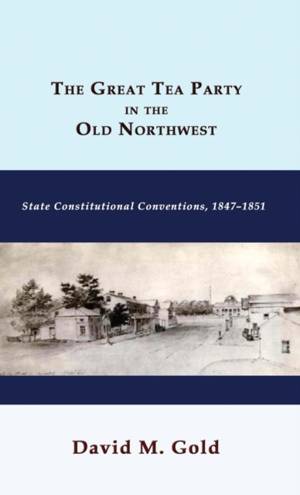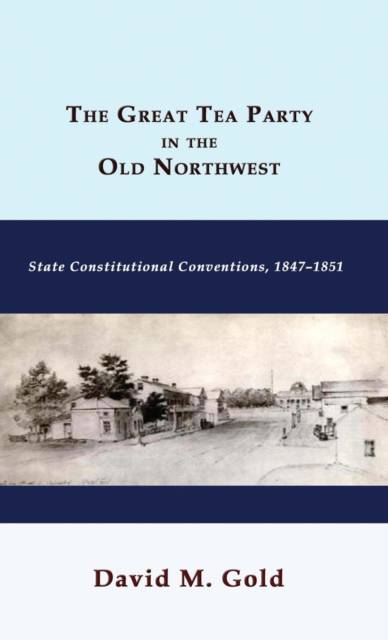
- Retrait gratuit dans votre magasin Club
- 7.000.000 titres dans notre catalogue
- Payer en toute sécurité
- Toujours un magasin près de chez vous
- Retrait gratuit dans votre magasin Club
- 7.000.0000 titres dans notre catalogue
- Payer en toute sécurité
- Toujours un magasin près de chez vous
The Great Tea Party in the Old Northwest
State Constitutional Conventions, 1847-1851
David M Gold
Livre relié | Anglais
54,45 €
+ 108 points
Description
Supporters of the 21st-century Tea Party movement claim the Boston Tea Party of 1773 as their inspiration, while scholars dismiss the connection. Neither camp pays much attention to the intervening years, and both overlook one of the great populist movements in American history. As David M. Gold demonstrates in 'The Great Tea Party in the Old Northwest, ' 19th-century Americans who were fed up with reckless government spending, high taxes, and crony capitalism launched a campaign for smaller, more accountable, more transparent government. The movement culminated in state constitutional conventions in all the states of the Old Northwest, and other parts of the country as well, that rewrote the nation's fundamental law. Citizens and scholars will continue to debate the merits of the Tea Party platform, but with the publication of this book they can no longer ignore the longstanding and continuing significance of Tea Party thought in American history. - "David Gold's 'The Great Tea Party in the Old Northwest' is an incisive, scholarly examination of state constitutional conventions which were held in the five states of the original Northwest Territory-Ohio, Indiana, Illinois, Michigan, and Wisconsin-between 1847 and 1851. Closing the gap between the Boston Tea Party of 1773 and the modern-day Tea Party movement, he outlines a pattern of public mistrust of government, whether the government be the British Parliament in the late 18th century, American state legislatures in the mid-19th century, or the federal government in the early 21st century. Gold recounts in great detail the efforts of Tea Partiers of the mid-19th century to curb the power of government with such measures as putting severe limitations on internal improvements, imposing debt ceilings, limiting banking laws and special acts of incorporation, mandating popular election of public officials, and limiting the legislature to biennial rather than annual sessions, to name a few. This book is a must for those interested in the forerunners of the modern Tea Party who fought to streamline state governments in an earlier era of American history." - Herbert James Lewis, Author of 'Clearing the Thickets' and 'The Lost Capitals of Alabama'
Spécifications
Parties prenantes
- Auteur(s) :
- Editeur:
Contenu
- Nombre de pages :
- 154
- Langue:
- Anglais
Caractéristiques
- EAN:
- 9781610273022
- Date de parution :
- 07-04-15
- Format:
- Livre relié
- Format numérique:
- Genaaid
- Dimensions :
- 140 mm x 216 mm
- Poids :
- 344 g

Les avis
Nous publions uniquement les avis qui respectent les conditions requises. Consultez nos conditions pour les avis.






